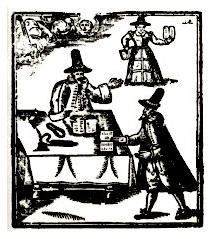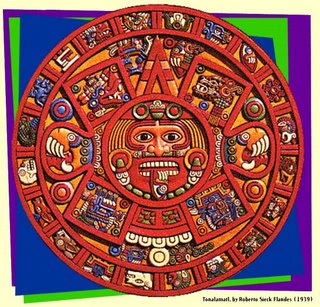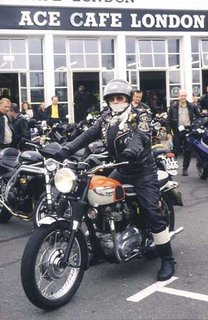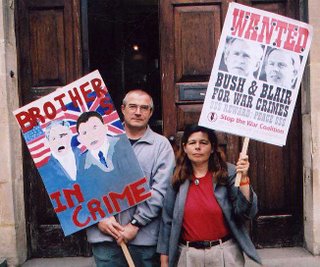
1.
It’s well known that Madonna has declared herself a Kabbalist. The problem is in knowing what exactly she means by the term. What's a Kabbalist? As far as I know the last of the historical Kabbalists died out some time in the 16th century.
It turns out that what she is referring to is a contemporary hip-Jewish cult which has adopted the name of Kabbalism. In other words, what Madonna is is a "neo-Kabbbalist". What it has to do with original Kabbalism - how closely it follows the doctrines and practices of the medieval mystics who used that name - is another question, and one that we can never truly answer. I mean, even assuming they mimic every known activity, and read every text, would they really understand the milieu, the psycho-political background, in which the Kabbalists worked: a persecuted sect amongst a persecuted people in an era of fixed opinions and deep suspicion for anything that looked like intelligence or learning or that went against the orthodoxy of the time?
Maybe. Maybe not. Who knows? Maybe Madonna will enlighten us some day.
But, it struck me: if Madonna and her associates can call themselves by the name of an obscure medieval sect, about which they know precious little - and other well-known people can call themselves by such names as Templars or Rosicrucians or Gnostics or Druids or Witches, or other names of other obscure hardly-known cults from the past, on which they then project all their own modern manners and ideas and preferences - then I can do the same. I can call myself by a name and declare myself to be it. I can make up a religion too.
So that’s what I will do now. I will now declare myself.
I am a Ranter.
Did you get that folks?
I AM A RANTER!
I am the twenty-first century equivalent of the spiritual-anarchistic dissident cult which flourished oh-so briefly in the first years after the end of the English Civil War and before the declaration of the Protectorate (between the defeat of the Levellers and the rise of the dictator Cromwell) and who probably never existed as such, except as a kind of lurid tabloid scare story to frighten Baptists with.
Yes.
A Ranter.
Well they did exist. There were people who would be recognisable as Ranters, though they may not have described themselves in those terms. Sometimes they called themselves High Professors, sometimes High Attainers (if they called themselves anything at all); sometimes they referred to themselves as the Church of the Free Spirit. You might see them about ranting at the top of their voices - hence their name - giving impromptu sermons beneath oak trees, or in fields on common land, as itinerant preachers, often accompanied by bouts of uncontrollable swearing and blaspheming, declaring that everything is God and that sin had been abolished. Or gathering in pubs and ale-houses in urban centres throughout the land, ripping up bread and meat and swilling ale and calling it the equivalent of the Eucharist; being loud and hearty and gloriously drunk, singing lewd songs to the tune of the psalms while bowdlerising the lyrics; men and women both, being wantonly, lasciviously and openly carnal in full public view.
They never had an organisation as such. There never was a Ranter church or a Ranter party. They were a phenomenon of the time. Like seventeenth century hippies, say, or seventeenth century punks, seventeenth century ravers or seventeenth century mods, they just were: seventeenth century anarcho-spiritual revolutionaries in uproarious violation of all that was held sacred by the forces of Church and State.
The year is 1649. The Levellers - the revolutionary democrats of the New Model Army - had been defeated. The King had been tried and executed. The world was in turmoil. Everywhere there were prophets, there were rumours, there were seditious mutterings at secret meetings in the dead of night. Religious sects were springing up all over the place. It seemed like we were at the End of Time, as if the prophecies of the Revelation were coming true at last, as if, at any moment, Christ himself would ride into the land on a chariot of burnished fire, resplendent in his glory, to take over the Kingdom, to make it the Kingdom of God on this Earth, and to rule in God‘s name for all Eternity. No one knew what would happen.
At some point in the year Gerard Winstanley had declared a Commonwealth and set up the Digger community on St George’s Hill in Surrey, having written The True Leveller's Standard Advanced, the Digger’s manifesto, in which he stated, “In the beginning of Time, the great Creator Reason, made the Earth to be a Common Treasury,” adding, “Every single man, Male and Female, is a perfect Creature of himself; and the same Spirit that made the Globe, dwells in man to govern the Globe; so that the flesh of man being subject to Reason, his Maker, hath him to be his Teacher and Ruler within himself, therefore needs not run abroad after any Teacher and Ruler without him, for he needs not that any man should teach him, for the same Anointing that ruled in the Son of Man, teacheth him all things.”
Get that? The spirit that anointed Jesus teaches every individual man within himself. Every man, every woman, is like Jesus. No need for teachers. No need for rulers. No need for priests. The Earth is a common treasury for all.
The Diggers were cast out of their self-created communal heaven by the forces of property and repression, chased out by the sword, violated, locked up and destroyed.
Revolutionary political and spiritual millenarianism was the ethos of the time.
There was a flurry of political and religious tracts, some of which were called Ranter.
The most powerful of these is the one known as the Fiery Flying Roll by Abeizer Coppe*, published in 1650, but written in state of high energy and expectation in 1649, after a series of revelations and visitations that had the poor befuddled writer stirring in perplexity, in awe and startled wonder.
These are the opening lines:
"My Dear One.
All or none.
Everyone under the Sun.
Mine own.
My most excellent Majesty (in me) hath strangely and variously transformed this form. And behold, by mine own Almightiness (in me) I have been changed in a moment, in the twinkling of an eye, at the sound of the trump.
And now the Lord is descended from Heaven, with a shout, with the voice of the Archangel, and with the trump of God.
And the sea, the earth, yea, all things are now giving up their dead. And all things that ever were, are, or shall be visible ― are the grave wherein the King of glory (the eternal, invisible Almightiness) hath lain as it were dead and buried.
But behold, behold, he is now risen with a witness, to save Zion with vengeance, or to confound and plague all things into himself; who by his mighty angel is proclaiming (with a loud voice) that sin and transgression is finished and ended, and everlasting righteousness be brought in with most terrible earth-quakes and heaven-quakes, and with signs and wonders following."
Get that?
"My most excellent Majesty (in me)..."
The spirit within...
"Hath strangely and variously transformed this form..."
Has touched the very flesh, the very shape and form of the being who is here writing...
"Mine own Almightiness (in me)..."
The Eternal Soul...
"Has risen with a vengeance... who by his mighty angel is proclaiming... that sin and transgression is ended..."That there will be no more sin, but only joy and grace abounding, everlasting.
"And under all this terror, and amazement, there was a little spark of transcendent, transplendent, unspeakable glory, which survived, and sustained itself, triumphing, exulting, and exalting it self above all the fiends. And, confounding all the blackness of darkness (you must take it in these terms, for it is infinitely beyond expression.) Upon this the life was taken out of the body (for a season) and it was thus resembled, as if a man with a great brush dipped in whiting, should with one stroke wipe out, or sweep off a picture upon a wall, &c. After a while, breath and life was returned into the form again. Whereupon I saw various streams of light (in the night) which appeared to the outward eye, and immediately I saw three hearts (or three appearances) in the form of hearts, of exceeding brightness; and immediately an innumerable company of hearts, filling each corner of the room where I was. And methoughts there was variety and distinction, as if there had been several hearts, and yet most strangely unexpressably complicated or folded up in unity. I clearly saw distinction, diversity, variety, and as clearly saw all swallowed up into unity. And it hath been my song many times since, within and without, unity, universality, universality, unity, Eternal Majesty, &c. And at this vision, a most strong, glorious voice uttered these words: The spirits of just men made perfect. The spirits, &c. with whom I had as absolute, clear, full communion, and in a twofold more familiar way, than ever I had outwardly with my dearest friends and nearest relations. The visions and revelations of God and the strong hand of eternal invisible almightiness was stretched out upon me, within me, for the space of four days and nights without intermission."
Get that? Get that? Read it again if you don't. Just be clear how profound these visions are, and ask yourself where, exactly they are coming from.
These were the revelations spilling out from the sons of men in these day, profound and disturbing and proof, if any were needed, of the reality of the divine presence and of its revolutionary intent.
So the Ranters existed, but, unlike the Levellers - who were an organised political party springing from the New Model Army, with a structure and a leadership and a set of demands - they were just a few scattered individuals speaking in tongues of the turmoil of the world. They represented the seditious murmerings of the defeated democrats, turned in on themselves - turned to millenarian dreams of an immanent and imminent God - on the threshold of awareness, on the doorstep of existence, just waiting to burst asunder our fallen and defeated world. They called for the end of religion and talked of the indwelling spirit whom thy named Christ in Man. One of their slogans was “All is Well,” another “All is Ours.” They whistled and danced and sang and called for drink and tobacco. To the pure all things are pure, they said. There is no such thing as sin. They called their God the Being, the Fullness, the Great Motion, Reason or the Immensity. And when they meet in the street or in the Ale-House bar they would hail one another as Fellow Creature.
These were times not unlike our own.
The whole world was going crazy.
2.
Actually, saying that - saying “I am a Ranter!” - has been a liberating experience for me.
I hate to be labelled.
Those of you who have followed my career will know that I’ve spent over ten years following the Druids about, having written at least three books featuring Stonehenge and its recent history and the history of modern Druid culture. I even have a Druid robe. It’s blue and white with a parchment design on the front with a quill pen writing the words (as a copy of my own handwriting) “Once upon a time”.
Carrie de Fey made it for me. I had it made because while I was writing King Arthur’s book with him he insisted that I wear a robe, and I wanted something a little more individual than the simple white nightie that the rest of the Druids wore.
It’s lovely.
Unfortunately I never wear it.
I’m not a Druid.
A friend, knowing of my interest in pagan culture, asked me what it was all about. So I told her.
“Paganism is to religion what anarchism is to politics,” I said.
It’s the people’s religion, I said. No need for priests. We make our own rules. We make our own rituals. We mark our own critical times in our lives - our own births and marriages and deaths - in our own way, and we make our own peace with the god or goddess of our own choosing in our own terms.
Hence there’s a kind of absurdity in anyone wanting to be a Druid. Druids are, by their own assertion, pagan priests and "pagan priests" are a logical contradiction since no such thing can exist.
I have to admit, I’m a kind of priest myself, however. Not a pagan priest. Priest by persuasion rather than by profession. Priest by nature, meaning I take everything too seriously, even my own jokes. An atheist priest. Priest of the proletariat. High priest of the holy hell-raisers, drinking a toast to mine - and your - soul.
My friend said, “so is that what you are then, a pagan?”
I was faintly embarrassed.
“No,” I said, “I’m an anarchist,” and then hated myself for saying that too.
You name yourself as anything and it’s immediately sad. It immediately throws up contradictions.
I’ve given myself all sorts of names in the past. I’ve been a hippie, a punk, a socialist, a communist, an anarchist, a half-hearted Druid, a drunk, a wanker, a writer.
A pagan priest is a contradiction in terms, since paganism is the religion of the people and the people don‘t need priests. Priests are, by definition, ideologists of the State.
The nearest I ever came to adopting a label was when someone told me what pantheism means.
I think I can accept the term pantheist.
A pantheist is someone who believes that everything is God. God is everywhere, in everything, immanent and magnificent, earthly and mundane, a part of our world. Thus a pantheist can be an atheist, a materialist, a humanist, a deist, a creationist, an evolutionist, a scientist, a priest, a believer, a disbeliever, a Gnostic and an agnostic all at the same time. He or she is all of these things and none of them. A gnostic agnostic: someone who knows what he doesn't know.
It’s the only logical solution.
The Ranters were the first self-professed pantheists in modern history. Therefore I am a Ranter.
See, I’ve said it again, so it must be true.
I am a Ranter.
Hail Fellow Creatures!
*******
*http://history.wisc.edu/sommerville/367/Coppe%20Fiery.htm






